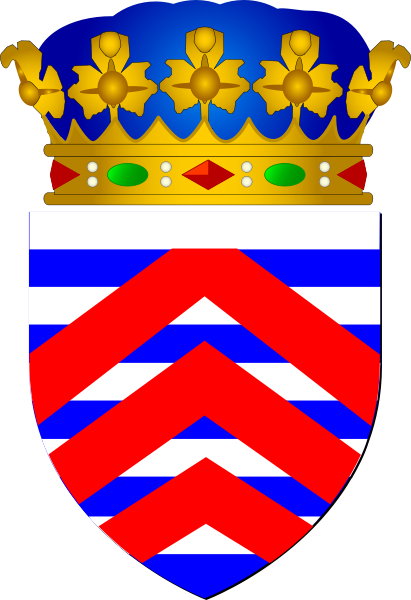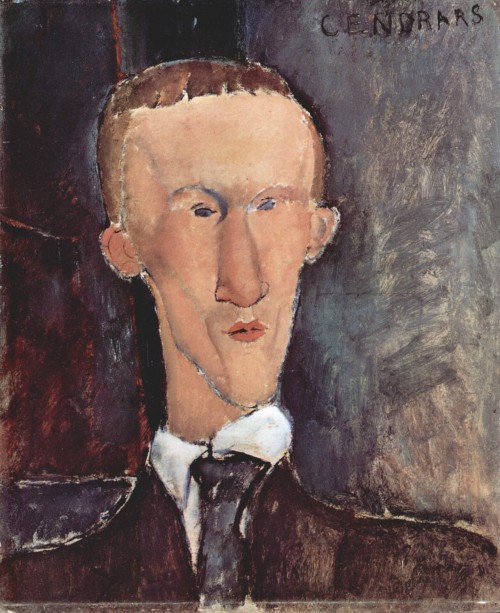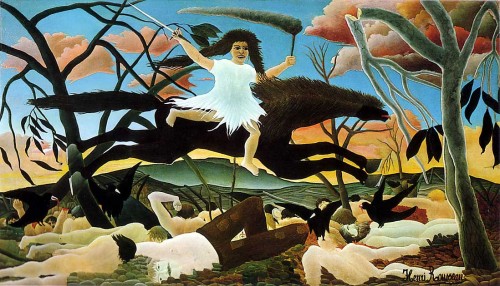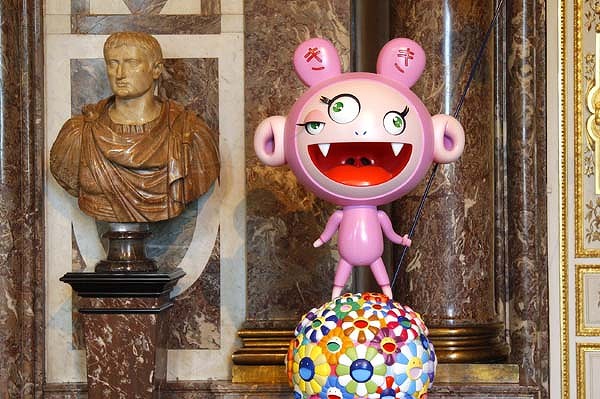Francois VI, Duc de La Rochefoucauld, on Writing
“If I were interested in literary glory I think that with a little trouble I could make quite a name, for I can write good prose and make up decent verse. / I am fond of all kinds of reading, but especially that in which there is something to train the mind and toughen the soul; and above all I find very great enjoyment in sharing my reading with an intelligent person, for in so doing one can continually reflect upon what is being read, and such reflections form the basis of the most delightful and profitable conversation… / I do not think this knowledge of mine will ever pass from my head to my heart.” — from his self-portrait
Voltaire said Rochefoucauld’s Maxims had a huge hand in the formation of taste in French culture, “giving it a feeling for aptness and precision,” says Leonard Tancock, the translator. I found this book randomly at the library, and realized David Shields included it in a reading list posted on The Millions. These ones I thought had something maybe to do with writing or whatever:
She Skull Spirit Stupid Stupid Sensuality Stands Stars Sky She Shoulder Sun Sword Saint Signature Sandwich Same Scrap Stroke Skin Structure Scratch Skull
Elastic Poem #6
by Blaise Cendrars
Translated by Ron Padgett
Noodz by Modigliani
She Has a Body on Her Dress
A woman’s body is as bumpy as my skull
Glorious
If you’re embodied with a little spirit
Fashion designers have a stupid job
As stupid as phrenology
My eyes are kilos that weigh the sensuality of women
“Rousseau was categorically convinced of the existence of vampires.” –David Markson
So I’ve been thinking a lot on naive art, a term people don’t use no more, and how it relates to writing. Rousseau is talked at a lot in Markson’s This is not a novel, the main character of which is named Writer. It’s hard to tell though, which one he’s talking about — Henri or Jean-Jacques — unless of course you know who Le Douanier was. It’s interesting too to think on the distinction(s) between folk art, outsider art, primitive art, and the art of children or the mentally ill. Because there is a difference apparently according to Anatole Jakovsky and other people at least there was, the differences some of them anyway being that naive artists produce a color palette which is harmonious if different from that of the usual whatever. The compositions are balanced and interesting, even inspired, but not executed as people are taught in art school. I don’t buy this.
One perfect paragraph (from a book with plenty to spare)
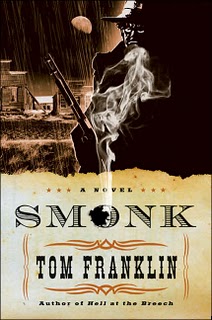 Upriver, dawn’s dry herald brought to the hungover steamship crew news of the pervert Evavangeline had gutted the midnight before. It went bunk to bunk in whispers and giggles. Instead of falling into the water like decent folk, the pervert had gotten tangled in a fishnet hung along the ship’s port side. Throughout the night a pulsing contingent of catfish, carp, grinnel, gar, sucker, alligators and even a few river-lost sand sharks disoriented by fresh water had followed the boat, swirling in the ooze. In the morning light, enormous orange crawfish with their pinchers clicking rode the body, one arm of which trailing in the water was festooned with moccasins attached at the fang. When one became too blooded it fell loose and sank in the clouds in the sky in the river.
Upriver, dawn’s dry herald brought to the hungover steamship crew news of the pervert Evavangeline had gutted the midnight before. It went bunk to bunk in whispers and giggles. Instead of falling into the water like decent folk, the pervert had gotten tangled in a fishnet hung along the ship’s port side. Throughout the night a pulsing contingent of catfish, carp, grinnel, gar, sucker, alligators and even a few river-lost sand sharks disoriented by fresh water had followed the boat, swirling in the ooze. In the morning light, enormous orange crawfish with their pinchers clicking rode the body, one arm of which trailing in the water was festooned with moccasins attached at the fang. When one became too blooded it fell loose and sank in the clouds in the sky in the river.
– Tom Franklin, Smonk
GIANT EXCERPT: “There’s a Road to Everywhere Except for Where You Came From” by Bryan Charles
[FYI: I know it’s Mean Week, but here’s something not mean. Bryan Charles’s memoir will be published by Open City Books in November. New York folks, Charles reads with Ed Park at the KGB Bar on Wednesday, 10/27. – JT]
 I received a box of business cards that said BRYAN A. CHARLES, STAFF WRITER. I sent one to my mother and she was delighted. I started reading the Wall Street Journal and various financial websites, learning the biz. I made sure Clara saw the Journal open on my desk every morning. Occasionally if I felt comfortable I’d mention an article or some topic of interest to the markets generally. I ran drafts of my “Thinking Primarily About Mutual Funds” piece by Peter, the senior writer. He was in his early thirties, had been at the game a while, and had a great gift. Peter could open his mouth and speak fully formed marketing sentences. But there was an irony in his manner that subtly conveyed the absurdity of our task. Peter taught me that financial services involved pushing and repackaging and reselling the same few concepts: diversification, buying a new home, saving for your children’s college education or your own retirement. But the bedrock tenets of financial marketing were stressing the importance of taking a long-term view and encouraging investors to consult financial advisors.
I received a box of business cards that said BRYAN A. CHARLES, STAFF WRITER. I sent one to my mother and she was delighted. I started reading the Wall Street Journal and various financial websites, learning the biz. I made sure Clara saw the Journal open on my desk every morning. Occasionally if I felt comfortable I’d mention an article or some topic of interest to the markets generally. I ran drafts of my “Thinking Primarily About Mutual Funds” piece by Peter, the senior writer. He was in his early thirties, had been at the game a while, and had a great gift. Peter could open his mouth and speak fully formed marketing sentences. But there was an irony in his manner that subtly conveyed the absurdity of our task. Peter taught me that financial services involved pushing and repackaging and reselling the same few concepts: diversification, buying a new home, saving for your children’s college education or your own retirement. But the bedrock tenets of financial marketing were stressing the importance of taking a long-term view and encouraging investors to consult financial advisors.
Ha-ha
Before the advent of mechanical lawnmowers a commonly-used way to keep grass trimmed was to allow livestock, usually sheep, to graze; a ha-ha allowed them to trim the grass of large estates while keeping them out of view from the house.
The ha-ha is a feature in the landscape gardens laid out by Charles Bridgeman, the originator of the ha-ha, according to Horace Walpole (Walpole 1780), and by William Kent and was an essential component of the “swept” views of Capability Brown.
The contiguous ground of the park without the sunk fence was to be harmonized with the lawn within; and the garden in its turn was to be set free from its prim regularity, that it might assort with the wilder country without.
Walpole surmised that the name is derived from the response of ordinary folk on encountering them and that they were, “…then deemed so astonishing, that the common people called them Ha! Has! to express their surprise at finding a sudden and unperceived check to their walk.”
An unusually long example is the ha-ha separating the Royal Artillery Barrack Field from Woolwich Common in southeast London. This deep ha-ha was installed around 1774 to prevent sheep and cattle, grazing on Woolwich Common as a stopover on their journey to the London meat markets, from wandering onto the Royal Artillery gunnery range.
Ha-has were also used at Victorian-Era lunatic asylums such as Yarra Bend Asylum and Kew Lunatic Asylum in Australia. From the inside, the walls presented a tall face to patients, preventing them from escaping, while from outside the walls looked low so as not to suggest imprisonment.
Hey, dreams, I dreamed you. I’m not something you curb a dog for.
 There’s this guy I know who was raised by professional clowns in New Mexico. When we met seven years ago in New Orleans I was terrified of him but now he can be counted on to bring things to my attention that I would have otherwise missed, like this passage from the introduction to The House of Blue Leaves by John Guare.
There’s this guy I know who was raised by professional clowns in New Mexico. When we met seven years ago in New Orleans I was terrified of him but now he can be counted on to bring things to my attention that I would have otherwise missed, like this passage from the introduction to The House of Blue Leaves by John Guare.
I’m right here in the heart of the action, in the bedroom community of the heart of the action, and I live in the El Dorado Apartments and the main street of Jackson Heights has Tudor-topped buildings with pizza slices for sale beneath them and discount radios and discount drugs and discount records and the Chippendale-paneled elevator in my apartment is all carved up with Love To Fuck that no amount of polishing can ever erase. And why do my dreams, which should be the best part of me, why do my dreams, my wants, constantly humiliate me? Why don’t I get the breaks? What happened? I’m hip. I’m hep. I’m a New Yorker. The heart of the action. Just a subway ride to the heart of the action. I want to be part of that skyline. I want to blend into those lights. Hey, dreams, I dreamed you. I’m not something you curb a dog for. New York is where it all is. So why aren’t I here?
“Please, sir, I want Pessoa.”
 I was sick with flu and fever for a few days. In my state I hallucinated a tiny antique piano being fixed by a giant; his fingers were enormous pillows and he used them very delicately. The piano could be mine for fifty bucks. There was also a cartoon faucet that wouldn’t turn off. I wasn’t able to read or watch TV. When the grueling thing left my body, I sipped some mothermade gruel and convalesced not for the first time in The Book of Disquiet: READ MORE >
I was sick with flu and fever for a few days. In my state I hallucinated a tiny antique piano being fixed by a giant; his fingers were enormous pillows and he used them very delicately. The piano could be mine for fifty bucks. There was also a cartoon faucet that wouldn’t turn off. I wasn’t able to read or watch TV. When the grueling thing left my body, I sipped some mothermade gruel and convalesced not for the first time in The Book of Disquiet: READ MORE >

